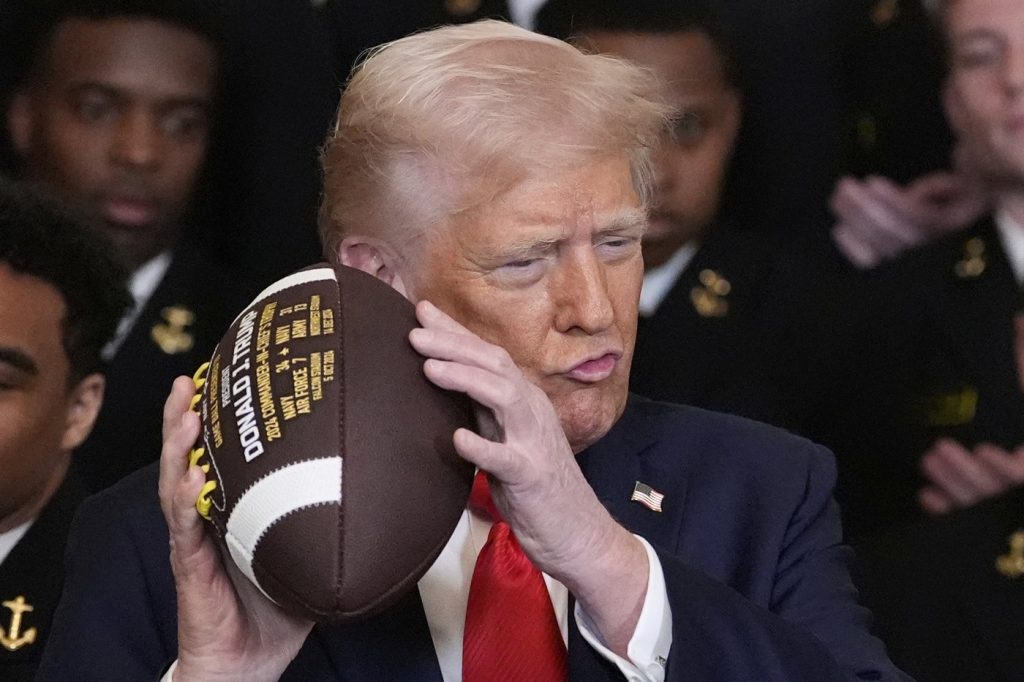In recent statements, Donald Trump, during his campaign, emphasized his commitment to eliminating what he referred to as "transgender insanity" from schools and insisted on keeping men out of women’s sports. Following his inauguration for a second term, Trump wasted no time in addressing these issues, implementing an executive order aimed at reinstating what he calls “biological truth” within the federal government. This order was part of a broader strategy that has included a specific action titled, "Keeping Men Out of Women's Sports."
The executive order grants the federal government substantial authority to penalize federally funded entities that fail to ensure fair athletic opportunities for women and girls. According to Trump, the "war on women's sports is over." However, the legality of such measures is under scrutiny, with legal challenges anticipated, similar to prior executive orders related to transgender rights. Notably, on April 16, 2025, the Trump administration filed a lawsuit against Maine for not adhering to the government's directive prohibiting transgender athletes from participating in women's sports.
The core of the executive order emphasizes that "sex" is strictly defined as the immutable biological classification of male or female, negating the concept of "gender identity." This directive alters the enforcement of Title IX, which historically has aimed to ensure gender equity in athletics and protect against sexual harassment in educational settings. The Trump administration’s interpretation is a sharp reversal from policies established during Joe Biden’s administration, which defined sex to include gender identity and reinforced protections for transgender athletes.
Estimating the number of affected transgender athletes remains complex. While the NCAA—comprising over 544,000 athletes—does not maintain specific data on transgender participation, it is known that the involvement of transgender athletes in competitive sports has been minimal. A 2019 survey indicated that only 5% of high school students identifying as transgender were actively participating in sports that aligned with their gender identity. The uncertainty surrounding these numbers raises questions about who will be impacted by the new order.
The implications of the executive order extend beyond student athletics and are rooted in wider issues of gender equity. According to a 2022 report, significant gender disparities continue to exist in athletic programs across various levels of education, with concerns about historical noncompliance with Title IX standards. Despite federal oversight, there have been no instances of funding being rescinded from any institution for failing to meet these standards.
In terms of state-level responses, about half of the states have already implemented bans on transgender athletes competing in sports aligned with their gender identity, reflecting a contentious national landscape. Some states are gearing up to challenge Trump’s order legally, with some officials criticizing it as "mean-spirited." The extent to which federal agencies will pursue enforcement against state sports associations that do not receive direct federal funding remains uncertain.
The NCAA has reacted promptly to these developments, amending its transgender participation policy to limit women's sports to athletes assigned female at birth. The National Association of Intercollegiate Athletics (NAIA) has also voted to ban transgender athletes, underscoring a broader trend among governing bodies in response to the changing policy landscape.
Additionally, the new executive order includes directives for the Secretary of State to persuade the International Olympic Committee (IOC) to adopt a uniform transgender policy, reflecting a growing interest in establishing clearer guidelines for transgender participation in sports globally.
In summary, the implications of the Trump administration's executive order regarding transgender athletes are vast, affecting individuals across schools, colleges, and potentially professional and international sports. As states prepare for legal battles and governing bodies adjust their policies, the conversation around gender, equity, and participation in sports continues to evolve and generate significant controversy.










